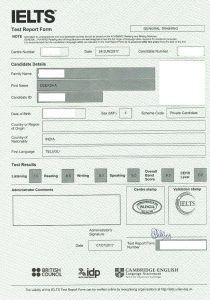Yesterday, a student called Tamara posted a great little tip about toilet breaks in IELTS.
Her points were these:
- It’s important to drink water because you are nervous and the exam is long. But inevitably you might need the toilet.
- IELTS do not provide toilet breaks. So, you need to choose the best time to go to the toilet.
- Don’t go during your listening test. The listening test will not stop because you have gone to the toilet. You will miss answers and you will get a lower score as a result.
- Go to the toilet during your reading or writing test.
- The writing test is usually really hard to complete on time, so for most students, it’s best to go to the loo during the reading test.
- Be prepared for your IELTS test. Sleep well, eat well and be ready to concentrate.
Tamara did very well in her test, getting band score 8.5 overall. Brilliant!! Well done to her 🙂 See her score and read her tips as well as tips from other students on this page: IELTS Results Page
Get On the Day Tips by click on the link. My on the day tips cover listening, reading, writing and also speaking. So, read them all well.
Good luck everyone!! 🙂
Liz








